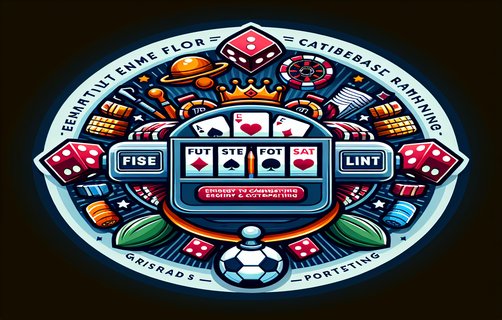Mastering the Poker Landscape: A Betting Analysis
पोकर परिप्रेक्ष्य में महारत: एक बेटिंग विश्लेषण
In the realm of poker, mastering the intricacies of the game is paramount. Flow management is crucial for your overall success at the felt. It involves not just understanding your own play but also being able to gauge the rhythm of the game and the tendencies of your opponents. Effective flow management allows you to maneuver through the different phases of poker, whether it be early, middle, or late-game play. Mistakes often arise when players ignore changes in the table dynamics, leading to disastrous betting decisions. Observing how others bet and react in different situations grants you insights that can be leveraged for your advantage.

Recognizing common mistakes is another essential aspect of poker betting strategy. Players might fall into traps such as overvaluing strong hands or misreading opponents’ betting behaviors. Awareness of misplaced aggression, where you push bets in a losing position, can save chips in the long run. Furthermore, a keen eye for certain betting patterns can reveal when it's best to fold or raise, contributing significantly to your end game.
When it comes to risk calculation techniques, it's vital to assess your actions against potential outcomes. This involves not just the odds of your hand but also considering your opponents' possible holdings and the likelihood they will continue in the hand. Effective risk analysis often involves taking calculated risks, where each bet is a strategic move influenced by the likelihood of various outcomes. Poker is a game built on probabilities, and understanding these can help you make informed decisions as the game progresses.
Avoiding common betting pitfalls is yet another layer to successful poker betting. New players might find themselves drawn into the excitement of a hand without considering their chip stack or the stage of the game. Emotional betting, spurred by mood swings, is also a frequent mistake. Employing a disciplined approach by adhering to a preset betting framework can be beneficial, ensuring that decisions are not made impulsively but rather through calculated reasoning.

Game advantage is multifaceted, relying on strategic adjustments in response to opponents’ plays. Reading the table, understanding position play, and taking advantage of opponents’ weaknesses are critical components in gaining a game edge. This creates opportunities to leverage psychological plays, often resulting in favorable outcomes. Additionally, maintaining a nonchalant poker face while interpreting opponents’ body language can provide insights that allow you to make informed betting decisions.
Budget distribution in poker is a vital strategy often overlooked by beginners. Allocating funds wisely ensures that you can withstand the variance of the game. It is recommended to set aside a specific amount for gaming sessions and stick to this budget, avoiding the pitfall of chasing losses. Additionally, proper bankroll management allows players to engage in higher-stake games when they feel confident, knowing they have a financial cushion.
In conclusion, poker is an amalgamation of skill, strategy, and psychological warfare. By mastering flow management, spotting common mistakes, employing risk calculation techniques, avoiding betting pitfalls, recognizing game advantages, and distributing your budget strategically, players can significantly increase their chances of success at the poker table. The harmony of these elements transforms the game into not just a test of luck, but a challenge of intellect and strategy.

comments
PokerGuru123
This analysis opened my eyes to so many aspects of poker I overlooked before.
BluffMaster
I need to seriously work on my flow management after reading this.
ChipStackKing
The section on budget distribution was really insightful!
BettingNinja
Avoiding emotional betting could save me a lot of chips in the long run.
AllInAlex
Loved the insights on common mistakes, I’ve made many of those.